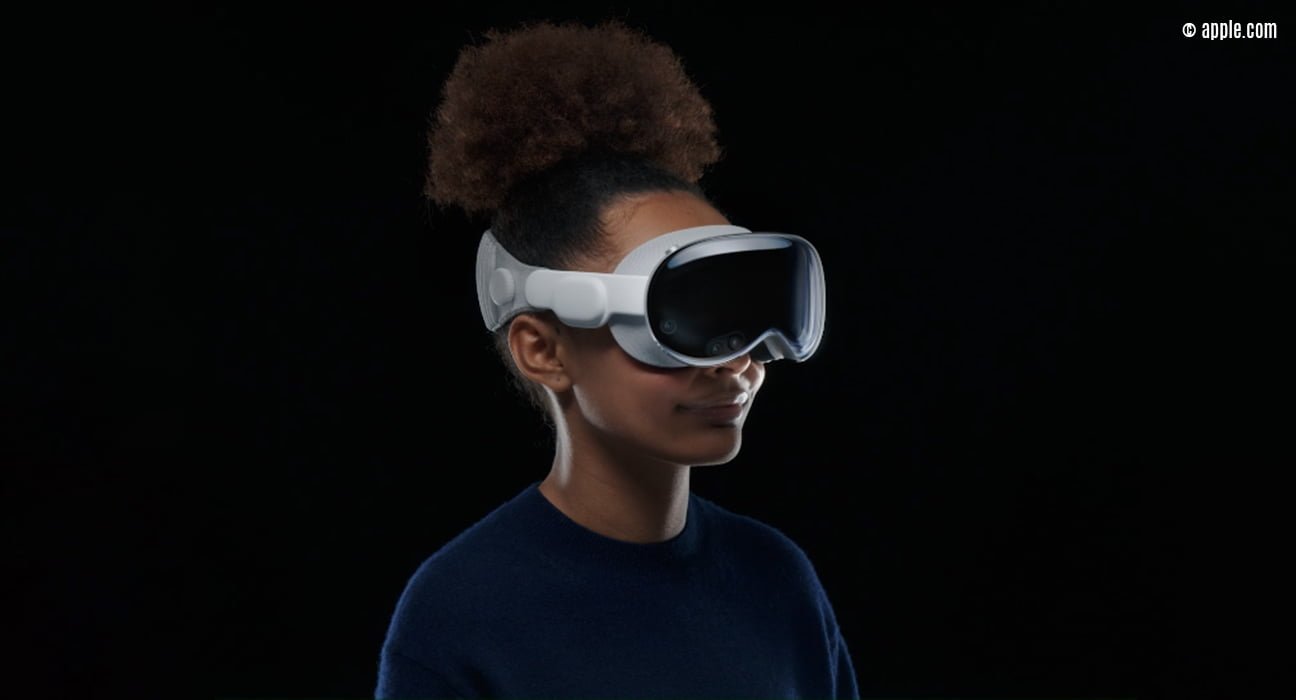In the fast-paced world of technology, Apple is once again the talk of the town with the sellout success of its newest product. The Vision Pro headset, priced at $3,499, was sold out within 18 minutes after Apple started taking orders for it. People were in lines, finding hacks, and in general, trying to get their hands on the product before others which led to this frenzy. People who couldn’t get their hands on this high-priced, highly coveted product will next be able to attempt to buy it starting February 2nd when it goes on sale.
There are conflicting reports about why this happened. Experts have speculated that it could be because Apple only made a small production run of not more than 60,000 and 80,000 headsets. On the other hand, China’s supply chain has estimated that around 400,000 units were produced. However, it is not the first time that Apple’s products have gone out of stock in such a short duration. Partly, this is because of the psychological tactics employed by the company to lure their customers.
1. Psychology of Scarcity: Limited Stock Triggers Urgency and FOMO
As there are conflicting reports on how many units were produced, it is possible that limiting production and not scaling to the demand was intentional. It works because of a combination of psychological reasons, one of which is the scarcity principle and another is the fear of missing out (FOMO). The Scarcity Principle is about the tendency to value exclusive items and devalue common ones. Apple has always maintained its niche status and thus could lead to people valuing its rarer and costlier products. On the other hand, FOMO comes into being as a result of both the perception of missing out and then compulsive behaviour to maintain relevance in society. Due to their perceived value & status symbol, Apple products are in general an indirect cause of FOMO to those who aren’t a part of the circle.
A combination of these led to an urgency to secure a now unique and exclusive product, Vision Pro. Consumers thus swiftly pre-ordered the headset because Apple’s supply, uniqueness of the product, and status in society tapped into the primal instinct of wanting what others might not have.
2. Social Proof and Brand Image: Aligning with Innovation Drives Quick Sales
This section delves deeper into why there is a social symbol status for Apple’s products. Its brand is synonymous with innovation and sellouts like these show the power of social proof (when people imitate the actions of others to mimic what they believe is the right behaviour for a specific situation) and brand image (not just the logo, but the overall aesthetics related impression that influences customer perceptions and decisions) for Apple. By positioning the headset as the ‘next big thing,’ Apple leveraged its reputation for cutting-edge technology. As consumers were eager to be part of the innovation narrative, they rushed to align themselves with a brand that consistently sets industry standards.
Read More: The Psychology of Media & Advertising
3. Power of Anticipation: Months of Teasers Create Peak Excitement
Anticipation can be a powerful motivator, and Apple’s months-long teaser campaign preceding the Vision Pro’s launch was a masterstroke. Not unlike anticipating a break makes extended periods of work easier to survive through, positive anticipation creates a sense of well-being and excitement before obtaining the product, a feeling of happiness on getting access to it, and positive nostalgia when using it afterwards.
In marketing, this psychological concept is teased out by flash sales, product drops, etc. This creates curiosity, cadence, content, and community around the product. In this case, by gradually revealing glimpses of the headset, Apple cultivated these aspects in the consumer market. The extended anticipation period primed consumers for the moment pre-orders opened, creating a huge storm of demand.
Read More: The Psychology of Money and Happiness
4. Emotional Connection: Apple’s Design and Interface Evoke Positive Responses
As electronic products commoditize and homogenize more quickly in terms of functionality, design, aesthetics, and interfaces are increasingly becoming important axes of differentiation. Design aesthetics thus play a crucial role in the psychology of product design and how consumers perceive it. Certain brands are thus expected to develop exclusive and pricey premium products by constantly working on and making the design aesthetics of products better.
Apple has always excelled in creating an emotional connection with its users in this aspect. The sleek design and user-friendly interface of the Vision Pro, which carries Apple brand aesthetics into modern times, are no exception. This understanding of purchasing decisions being motivated by emotions towards aesthetics, and the positive responses evoked by the headset’s design thus played another important role in the swift sellout.
Read More: The Psychology of Luxury Consumerism
Apple’s sellout reflects mastery of consumer psychology
Consumer psychology shows that there is a very crucial role of cognition when a person decides to exchange their hard-earned money for a product. They are influenced by multiple psychological factors including perceptions, emotions, facts, rationalizations, memories, sense of community, social standing, etc. before deciding to buy a product. Bringing it all together, Apple’s sellout success with the Vision Pro is a result of the company’s profound understanding of consumer psychology. By strategically employing the psychology of scarcity, leveraging social proof and brand image, orchestrating an extended anticipation period, and fostering an emotional connection, Apple has once again demonstrated its remarkable ability to create such tech frenzies.
The Psychology of Consumer Behaviour
The sellout of the Vision Pro headset within 18 minutes is not just a show of technological prowess but also makes it very clear that Apple has a strategic mastery and has done its homework in the realm of consumer psychology. As technology enthusiasts eagerly await the delivery of their pre-ordered headsets, Apple’s success serves as a case study of how understanding and leveraging consumer psychology can elevate a product from a mere commodity to a cultural trend.
References +
- https://timesofindia.indiatimes.com/gadgets-news/apples-next-big-thing-goes-out-of-stock-in-less-than-20-minutes/articleshow/106994606.cms
- https://interestingengineering.com/culture/is-3499-too-much-apples-vision-pro-pre-orders-explode-in-minutes
- https://www.explorepsychology.com/scarcity-principle/
- https://www.verywellmind.com/what-is-consumer-psychology-2794899
- https://www.upwardspiralgroup.com/blog/the-psychology-of-branding-how-brand-identity-influences-consumer-decisions#:~:text=Brand%20identity%20goes%20beyond%20a,for%20businesses%20to%20focus%20on
- https://www.dynamicyield.com/glossary/social-proof/#:~:text=By%20definition%2C%20social%20proof%20is,should%20be%20doing%20it%2C%20too













Leave feedback about this